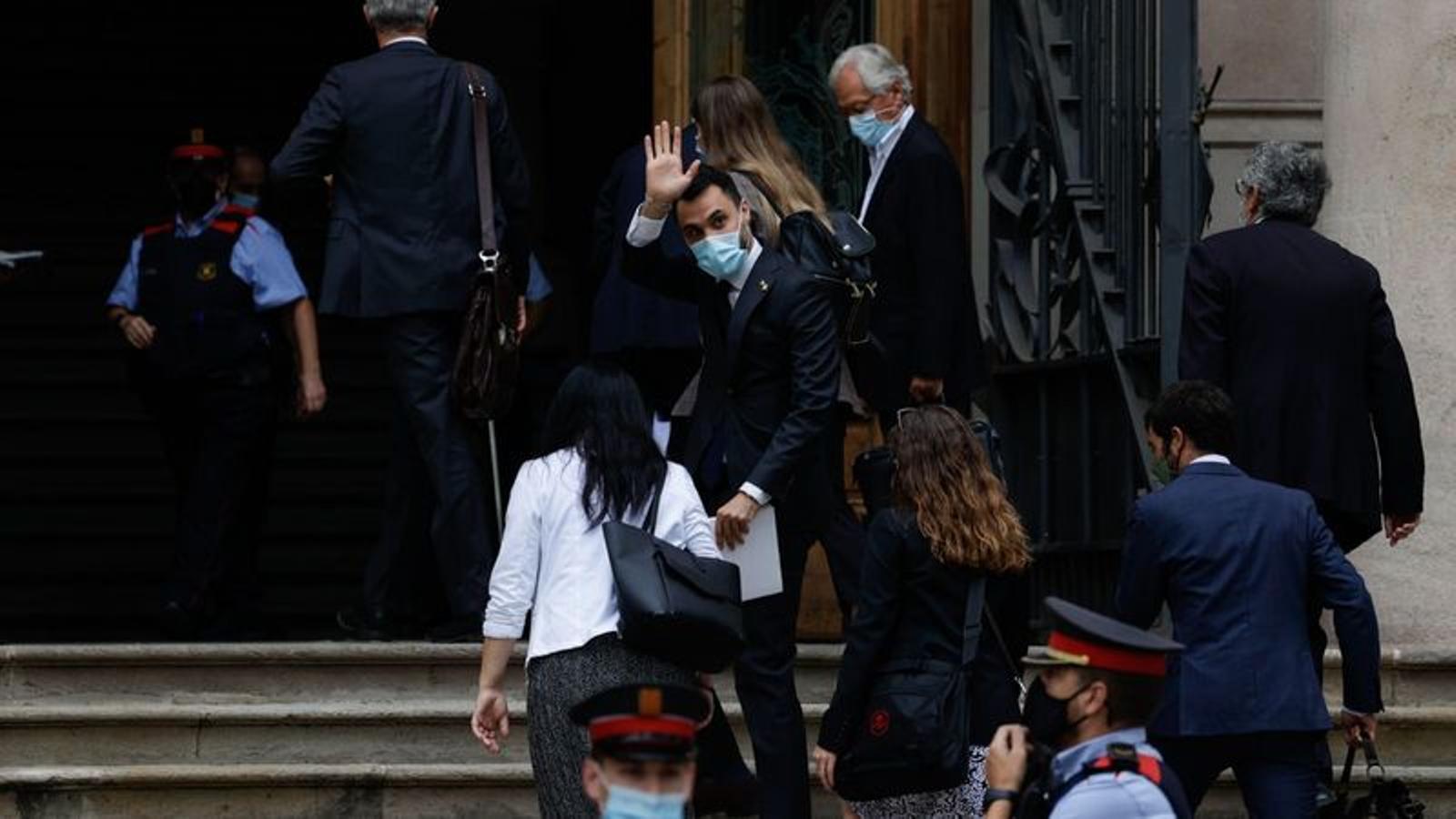Catalan High Court to try former Speaker Torrent for contempt of court on July 12th
Parliamentary Bureau former members Josep Costa, Eusebi Campdepadrós and Adriana Delgado will also stand trial


BarcelonaHe had been dodging lawsuits throughout his speakership, but just before the end of his term, the Prosecutor accused Roger Torrent of contempt of court. Once the instruction was finished, the Catalan High Court announced the trial will be held on July 12, 13 and 15, starting at 10 am. In addition to Torrent, the rest of pro-independence parliamentary bureau members have been subpoenaed: Josep Costa, who was deputy speaker, and Eusebi Campdepadrós and Adriana Delgado, who were secretaries. The investigating magistrate concluded that there was sufficient evidence that all of them had acted in contempt of the Constitutional Court by allowing the Catalan Parliament to discuss self-determination and the monarchy. The Prosecutor's Office is seeking a 20-month ban and a €30,000 fine for Torrent, Costa and Campdepadrós and an 18-month ban and a €24,000 fine for Delgado, who only participated in the processing of one of the initiatives.
The events which will be tried date back to autumn 2019 and refer to two resolutions. The first, presented by CUP, was approved by the chamber on November 12 of that year and defended the will "to exercise in a concrete way the right to self-determination and to respect the will of the Catalan people". The second, presented jointly by all pro-independence parties in response to the sentencing of pro-independence leaders over the 2017 Referendum, reiterated "the reprobation of the monarchy, the defence of the right to self-determination and the vindication of the sovereignty of the people of Catalonia to decide their political future". The two texts led the Public Prosecutor's Office to file a lawsuit against the bureau members that allowed it to be processed. It did so on March 1, 2020, after the February 14 elections had already been held and just a few days before they were replaced by other MPs at the bureau.
Defence strategy
In the case of the CUP's resolution, it was admitted for processing three minutes before the Constitutional Court's warning arrived, a fact that sources for the defence claim rules out contempt of court, despite prior warnings it had received over similar proposal. As for the second resolution, the chamber's lawyers argued that it had not been voted on using the original text; instead, changes were introduced after the court's warnings, which denounced the Constitutional Court's "censorship" of the original document. These two arguments will be used in the trial to defend the defendants' innocence.
In any case, it is Josep Costa who will most likely draw the most attention. The former deputy speaker did not appear before the judge when he was subpoenaed and was arrested weeks later to attended the hearing. Costa has remarked on numerous occasions that any decision by parliamentary bodies is protected by MPs' inviolability, and he does not recognise the court's legitimacy to try him.
